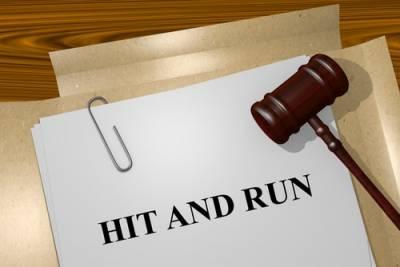Recent Blog Posts
What Happens if You Refuse to Take Field Sobriety Tests in Texas?
 In Texas, the charges of driving while intoxicated (DWI) are considered very seriously by the courts, and penalties for a conviction are significant. One of the most common ways drivers are arrested for DWI is being stopped by some other traffic violation when the officer suspects they have been drinking. The officer will then proceed with a breathalyzer test and field sobriety tests, which the driver will fail.
In Texas, the charges of driving while intoxicated (DWI) are considered very seriously by the courts, and penalties for a conviction are significant. One of the most common ways drivers are arrested for DWI is being stopped by some other traffic violation when the officer suspects they have been drinking. The officer will then proceed with a breathalyzer test and field sobriety tests, which the driver will fail.
While the state of Texas does require drivers to submit to a breathalyzer test (or face serious consequences for refusing), the law does not require drivers to submit to field sobriety tests.
Field Sobriety Tests
There are several types of field sobriety tests that law enforcement use when they suspect a driver has been drinking:
- Horizontal Gaze Nystagmus – Horizontal gaze nystagmus is when a person’s eyeball involuntarily jerks when the eyes are rotated in a certain way. When a person is intoxicated, the jerking occurs at lesser angles and is more exaggerated. For this test, the officer will ask the driver to follow a pen or flashlight as it is moved from side to side.
Are You Facing Charges of Fentanyl Possession?
 When people think of drug possession charges, they usually think of illegal drugs, such as cocaine, methamphetamine, and heroin. However, the drug epidemic that has gripped this country and caused hundreds of thousands of deaths has prescription opioid medications at the center. The majority of people who end up developing addictions all share a common theme: Due to an injury or illness, their doctors prescribed an opioid medication, and they quickly became addicted. It is well documented that a person can become addicted to opioids after just a few days of using the drugs. If your one of those people and you now are facing drug charges, you need a compassionate defense attorney advocating for you.
When people think of drug possession charges, they usually think of illegal drugs, such as cocaine, methamphetamine, and heroin. However, the drug epidemic that has gripped this country and caused hundreds of thousands of deaths has prescription opioid medications at the center. The majority of people who end up developing addictions all share a common theme: Due to an injury or illness, their doctors prescribed an opioid medication, and they quickly became addicted. It is well documented that a person can become addicted to opioids after just a few days of using the drugs. If your one of those people and you now are facing drug charges, you need a compassionate defense attorney advocating for you.
Opioid Epidemic
The current epidemic resulted because of the overprescribing of oxycontin, a powerful narcotic that was originally developed for pain relief for terminally ill cancer patients. Tragically, many doctors began prescribing these drugs for many other nonterminal conditions, creating the horrific epidemic mess we are in.
Defending Against DWI Charges in Texas
 Driving while intoxicated (DWI), whether it is due to alcohol, prescription medications, or any illegal substance, is a serious matter in Texas. The state has some of the harshest DWI penalties in the country, which include heavy fines, lengthy driver’s license suspensions, and potential mandatory minimum jail sentences. If you are arrested and charged with any type of DWI, you need an experienced criminal defense attorney working on your case. While you may think you are saving yourself money and can defend these charges on your own, these charges can have a significant impact on both your personal and professional life.
Driving while intoxicated (DWI), whether it is due to alcohol, prescription medications, or any illegal substance, is a serious matter in Texas. The state has some of the harshest DWI penalties in the country, which include heavy fines, lengthy driver’s license suspensions, and potential mandatory minimum jail sentences. If you are arrested and charged with any type of DWI, you need an experienced criminal defense attorney working on your case. While you may think you are saving yourself money and can defend these charges on your own, these charges can have a significant impact on both your personal and professional life.
DWI Defined Under Texas Law
Under the Texas law, it is illegal for a person to operate a motor vehicle under the influence of alcohol or any other intoxicating substance. Regular motor vehicle drivers can be charged with a DWI if their blood alcohol concentration (BAC) registers .08 percent or higher.
Are You Facing Hit and Run Charges in Texas?
 According to national statistics, there are more than six million police-reported vehicle accidents in the United States each year. It is estimated that a person will be involved in four crashes during their driving lifetime, so odds are that you will find yourself at the wheel of a car accident at some point.
According to national statistics, there are more than six million police-reported vehicle accidents in the United States each year. It is estimated that a person will be involved in four crashes during their driving lifetime, so odds are that you will find yourself at the wheel of a car accident at some point.
Vehicle accidents usually happen when you least expect them. Each crash has an at-fault driver and in an accident you are involved in, that at-fault driver could be you. Whether the crash occurred because you were engaged in reckless driving behaviors or not, it is important to stop immediately at the scene to protect yourself against criminal charges. Hit and run charges are a serious matter in Texas. In addition to being held liable for injuries others suffer as the result of your actions, you could end up facing severe criminal penalties.
Understanding Texas Law
How Is Domestic Violence Different From Assault in Texas?
 While domestic violence and assault are closely related offenses, domestic violence is seen as much more serious. The main difference is who the victim is. Assault can be charged no matter who the victim is, while domestic violence is committed typically against a family or household member, or a romantic partner. However, it can be confusing to keep track of who might be considered a qualifying victim for the purposes of charging domestic violence.
While domestic violence and assault are closely related offenses, domestic violence is seen as much more serious. The main difference is who the victim is. Assault can be charged no matter who the victim is, while domestic violence is committed typically against a family or household member, or a romantic partner. However, it can be confusing to keep track of who might be considered a qualifying victim for the purposes of charging domestic violence.
If you are facing charges of domestic violence or assault in Texas, the penalties could be severe if you are convicted. It is important that you approach handling your charges carefully and with the assistance of a qualified attorney.
Who Can Be the Victim in a Texas Domestic Violence Case?
You may hear the terms "domestic violence" and "family violence" used interchangeably. Neither term fully covers the bases of who might be included as a victim in a Texas domestic violence case. The definition can even include people you have never lived with in some circumstances. It is a common scenario for Texans arrested after a physical altercation to be taken by surprise when they learn that they are being charged with domestic violence rather than simple assault. Potential qualifying victims include:
The Seriousness of Probation Violations in Texas
 Probation comes with many rules to follow. You may be required to meet regularly with a probation officer, perform community service, submit to random drug testing, or meet other requirements imposed by the court. There are numerous ways to violate the conditions of probation, ranging from minor technical violations to serious willful violations. The sanctions for a violation will depend heavily on the circumstances, including what type of violation was involved and whether you have prior violations
Probation comes with many rules to follow. You may be required to meet regularly with a probation officer, perform community service, submit to random drug testing, or meet other requirements imposed by the court. There are numerous ways to violate the conditions of probation, ranging from minor technical violations to serious willful violations. The sanctions for a violation will depend heavily on the circumstances, including what type of violation was involved and whether you have prior violations
In the most severe cases, your probation could be revoked entirely, and you could be required to serve your full jail sentence. It is important that you are represented by an experienced attorney who can make the case that your violation does not warrant this type of consequence
What Are Some Less Serious Probation Violations?
A minor technical violation probably will not lead to jail time, but it is important to tread carefully. Repeated violations, even of a minor nature, may result in increasingly harsh consequences if the court begins to believe that you are not taking your probation seriously. Less serious violations include:
How a Criminal Record Can Affect Your Future
It’s a common misconception that only those found guilty of a crime have a criminal record. However, if you’re arrested, charged, or convicted of a crime, Texas will put this information on your criminal record.
After “paying your debt to society” through fines, jail time, or probation, many people believe they can now put this chapter behind them and start fresh. Unfortunately, a person’s criminal history can make that a difficult thing to do.
The Effects of a Criminal History
Employment
Employers can disqualify candidates for a number of reasons, including a previous arrest or conviction.
Additionally, Texas has laws that disqualify felons from applying for certain jobs throughout the state, including law enforcement, teaching, the restaurant/bar industry, and medical first responders.
Schooling
A criminal history can affect a person interested in going to college, attending trade school, or starting their own business. Not only can schools deny a person because of their criminal history, but certain drug or sexual convictions also prohibit you from receiving grants or student loans.
Filing for a Texas Divorce
No couple enters into a marriage thinking it will end in divorce. Unfortunately, that’s the outcome for roughly 50% of all marriages. In 2019, nearly 800,000 couples filed for divorce — many of them between January and March.
Whether because you don’t want to deal with prying family members around the holidays or you don’t want to affect your children's holiday season by announcing your divorce late in the year, many couples wait to file for divorce until the New Year.
Filing for Divorce in Texas
Divorce may be common these days, but it’s still a complex family legal issue that can have a significant impact on your and your kids’ future.
Before you file, below are a few things every couple should know:
- Be sure you’re ready to file. Unlike many other states, Texas doesn’t recognize legal separation — even if you and your spouse live apart from one another for years, your assets and debt are communal property.
Sobering Facts About Drunk Driving This Holiday Season
Drunk driving is a national concern every day of the year, but arrests tend to spike around the holidays. And even though most celebrations will look a bit different this year due to COVID-19, the winter holidays and New Year’s Eve celebrations will still cause an increase in binge drinking, alcohol-related violence, and DWI arrests.
Driving While Intoxicated During the Winter Holidays
Drunk Driving in Texas — Fast Facts
- Approximately 10.22% of Texas residents have been involved in a drunk driving crash at some point in their lives.
- More than 24% of Texas drivers who have driven drunk have been charged with a DWI or DUI.
- Approximately 14% of Texas drivers who have driven drunk have served jail time for doing so.
- On average, drivers with a DWI on their record can expect to pay an extra $569 annually in insurance premiums.
Why You Always Need an Attorney When Facing Criminal Charges
Facing criminal charges is one of the most overwhelming, scary, and uncertain experiences a person can go through. With everything from your freedom to reputation on the line, you should never take a charge — whether misdemeanor or felony — lightly.
Regardless of how much work you believe you can do yourself, the criminal justice system makes it virtually impossible for people to adequately represent themselves. With so much on the line, it’s always best to put your trust in an experienced attorney.
Why You Should Hire a Defense Attorney
1. They understand the criminal justice system.
No one understands the intricacies of the criminal justice system better than a defense lawyer. Even if you’ve been through the system before or believe you have a strong understanding of how everything works, the nature of criminal cases is incredibly complicated. At Magaña & Van Dyke, we take pride in the fact that we walk our clients through every step of the process, explaining what they can expect and answering any questions.






